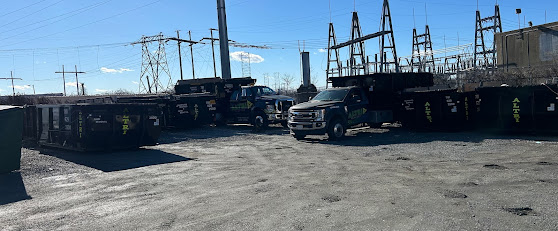Painting can breathe new life into any home or project, but what do you do with the remnants left at the bottom of the can? Disposing of paint improperly can have damaging effects on the environment, yet many DIYers are uncertain about the right method. In this post, we’ll cover everything you need to know about the safe disposal of paint, local regulations, and offer some innovative ways to use up leftover paint.
The Global Imperative for Proper Paint Disposal
The importance of proper paint disposal cannot be overstated. The chemicals in paint can be harmful to the environment, particularly when they contaminate water supplies or seep into the ground. As responsible citizens and stewards of our environment, it is crucial to understand the steps for safe paint disposal.
Types of Paint and Corresponding Disposal Methods
Water-Based Paint
Water-based, or latex, paint is the most common type and one of the easiest to dispose of. When it’s time to get rid of your water-based paint, the following steps will properly rid it from your home while minimizing environmental impact:
- Dry it Out: If you only have a small amount left, leaving the lid off and letting the paint dry can make it eligible for regular trash disposal. Mix the paint with absorbent material like kitty litter or sawdust to speed up the process.
- Professional Disposal: If you have larger quantities, or if the paint doesn’t dry out reliably due to a high water content, consider professional disposal services. Many local waste facilities can direct you toward a suitable option.
Oil-Based Paint
Oil-based paint contains more hazardous chemicals and therefore requires more care in disposal:
- Hazardous Waste Facilities: Most oil-based paint will qualify as hazardous, and as such, it should be taken to a household hazardous waste (HHW) facility for proper treatment.
Latex Paint
Some general advice may be applicable across both water-based and oil-based paint. However, always check with your local waste management service or recycling center for specific guidance on latex paint disposal.
The Environmental Impact of Improper Paint Disposal
When paint is disposed of improperly, the consequences can be dire. Direct dumping or even rinsing tools in freshwater sources introduce toxins that can take a considerable toll on our ecosystems and wildlife. Educating ourselves and others is the first step in avoiding such disasters.
Pollution of Water Sources
Improper disposal, which can include pouring paint down the drain, directly contaminates freshwater sources.
Harm to Aquatic Life
Aquatic life can be very sensitive to changes in their environment, with many species at risk from exposure to paint chemicals.
Soil Contamination
Paint can leach into the ground, causing long-term effects and rendering the soil inhabitable for many living organisms.
Adhering to Local Regulations for Paint Disposal
Every area can have varying rules and recommendations concerning paint disposal. Look to your local waste service or government agency for this information.
Researching Local Regulations
Visit the website or give a call to your local waste management for detailed information specific to your area.
Disposal Options Available in Different Areas
Your area may provide several options, such as drop-off locations or collection days for hazardous waste. Take advantage of these services to ensure your paint is handled properly.
DIY Projects Using Leftover Paint
Why let that last cup of paint go to waste? There are plenty of creative uses to keep leftover paint from ending up in the trash.
Creative and Practical Ideas for Leftover Paint
- Touch-ups and Small Jobs: Keep a bit around for any necessary touch-ups or small projects.
- Art Projects: Get creative by using paint for kids’ art projects or your own artistic pursuits.
- Upcycling Furniture: A little paint can give new life to old furniture.
- Custom Planters and Pots: Personalize your indoor or outdoor garden with custom-colored planters.
- Donation: If you can’t use it, someone else might. Consider donating to a local community center, school, or theater group.
Benefits of Reusing Paint
- Cost Savings: You’re finding ways to use up what you’ve already bought, which is a win for your wallet.
- Less Waste: By using up what you have, you’re contributing less to landfills.
- Personal Satisfaction: There’s something satisfying about finding new uses for items that might otherwise be discarded.
Conclusion
Proper paint disposal is a critical responsibility for anyone who uses paint, be it for professional or personal projects. By understanding the methods of correct disposal, adhering to local regulations, and being creative with surplus paint, we can contribute to a healthier environment while enjoying the benefits of a fresh coat of color. Remember, the paint you save might not just be for a rainy day but for the Earth’s future as well.
If you want to learn more about the topic or need assistance with your paint disposal efforts, don’t hesitate to contact us.




No comments:
Post a Comment